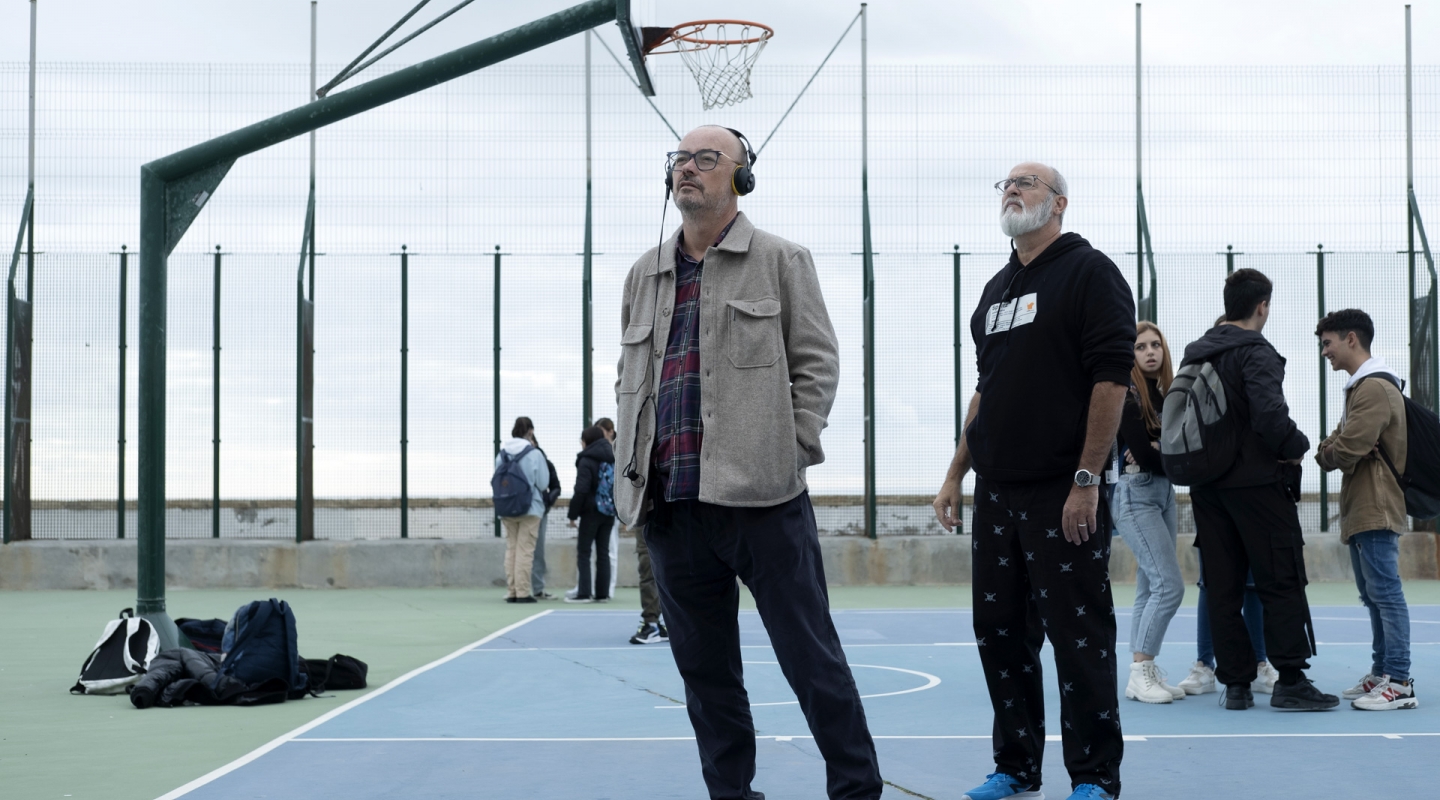News
BLACK NIGHTS 2023 Competition • Manuel Martín Cuenca • Director of Andrea’s Love
“All families are constantly being built and rebuilt”
Manuel Martín Cuenca welcomed us into his Madrid home a few days prior to his trip to Tallinn, where the Black Nights Film Festival is presenting his latest work, Andrea’s Love [+], which was shot in Cádiz, stars young first-timers and competed at the Seminci – Valladolid International Film Week a few weeks ago.
Cineuropa: Is this film perhaps on a smaller scale, production-wise, than your previous movies Cannibal [+] and The Daughter [+]?
Manuel Martín Cuenca: Yes, and Half of Oscar [+] was, too, but it was more formalistic – although all films are, really, as they entail a decision on how to set up the mise-en-scène, and even an apparent levity can also be used as a tool. Because I thought: what would have become of the film if I had only focused on the drama of that girl who doesn’t understand what happened between her parents, and if it didn’t include the relationship that she has with her two siblings and her friend? This serves as a counterweight and plants the seed of another story of affection that transports it to a more luminous place. This way, the character does not become totally absorbed by her conflict, but rather, she will have to carry on living, as it’s more difficult to do that on your own than when there are certain circumstances surrounding you. That opens up a new path towards finding affection in a place where they actually give it you.
Because one mustn’t beg for love…
It’s such a pure and profound idea that it demanded a mise-en-scène and a shooting method that would underpin all of that: filming with minimal gear, with panoramic shots and in a very stripped-back way. The fact that we didn’t have a dolly forced me to think about how to shoot in an almost documentary way. Therefore, in the film, there’s a planned imperfection built into the way we shot.
The search for genuine affection is not something that’s exclusive to your character. Does it happen to us all?
Constantly, and in every possible respect – in the relationship between a couple as well as in the family. But the film deals with something that’s fundamental in the development of the human spirit, and Andrea learns that you cannot force these things. I call her a “heroine” because she does something that is very healthy, which is facing up to reality. She cannot change reality, but she can transform herself. As a joke, I used to say that she had saved herself 20 years of therapy.
Because as we grow, we acquire habits that can sometimes be harmful.
Indeed; what Andrea is doing is breaking that dynamic. In other films of mine, an inevitable fate is triggered that leads to a tragic conclusion, but here, she breaks with that destiny, faces up to it and reaches a hopeful finale. I like films that end with something that can serve as the start of another story.
But why does an institution as old as family keep on failing?
As a lawyer friend of mine, who helped us with the script, says, show me a home that’s not broken. All families are constantly being built and rebuilt. Affections are alive, ever-changing and -evolving.
And what aspects of Manuel Martín Cuenca himself does the character of Andrea possess, apart from reading Jonathan Livingston Seagull?
She shares a lot of things with me, but also with screenwriter Lola Mayo and with Lupe Mateo Barrero herself, the actress who plays her. It was like travelling back to our teenage years, imagining ourselves at that crucial juncture in our lives once again and trying to portray it as honestly as possible, remembering how we felt or what was on our minds. It’s a portrait of youth as I see it: a teenager with attachment problems, and that’s why she doesn’t go to class and writes in her notebook. We wanted to conjure up that profound and simultaneously innocent, luminous and sincere point of view, steering clear of portraying the youngster as some kind of mentally ill person who doesn’t know what’s happening to them.
But she grows up too soon.
The working class is imposed on her. Her mother works all day and ends up abandoning her children because she’s forced to, as she has no other option. It’s very common in the working class for older siblings to have to take care of the younger ones. Perhaps the upper crust will not understand that…
You almost always shoot in Andalusia, don’t you?
It has some very varied locations. The Daughter was filmed in the Cazorla and Segura mountains, and this one was shot in Cádiz; that gives me the leeway I need to set up different stories and imagine different settings. I’m Andalusian and a producer, so it’s an almost subconscious exploration of the region, although I have worked on projects in Madrid and Cuba. I feel as though Andalusia is close to me and interesting, and a filmmaker talks about the things that move him and which he knows – that way, you get a truthful movie at the end of it.
By Cineuropa - See full article here
